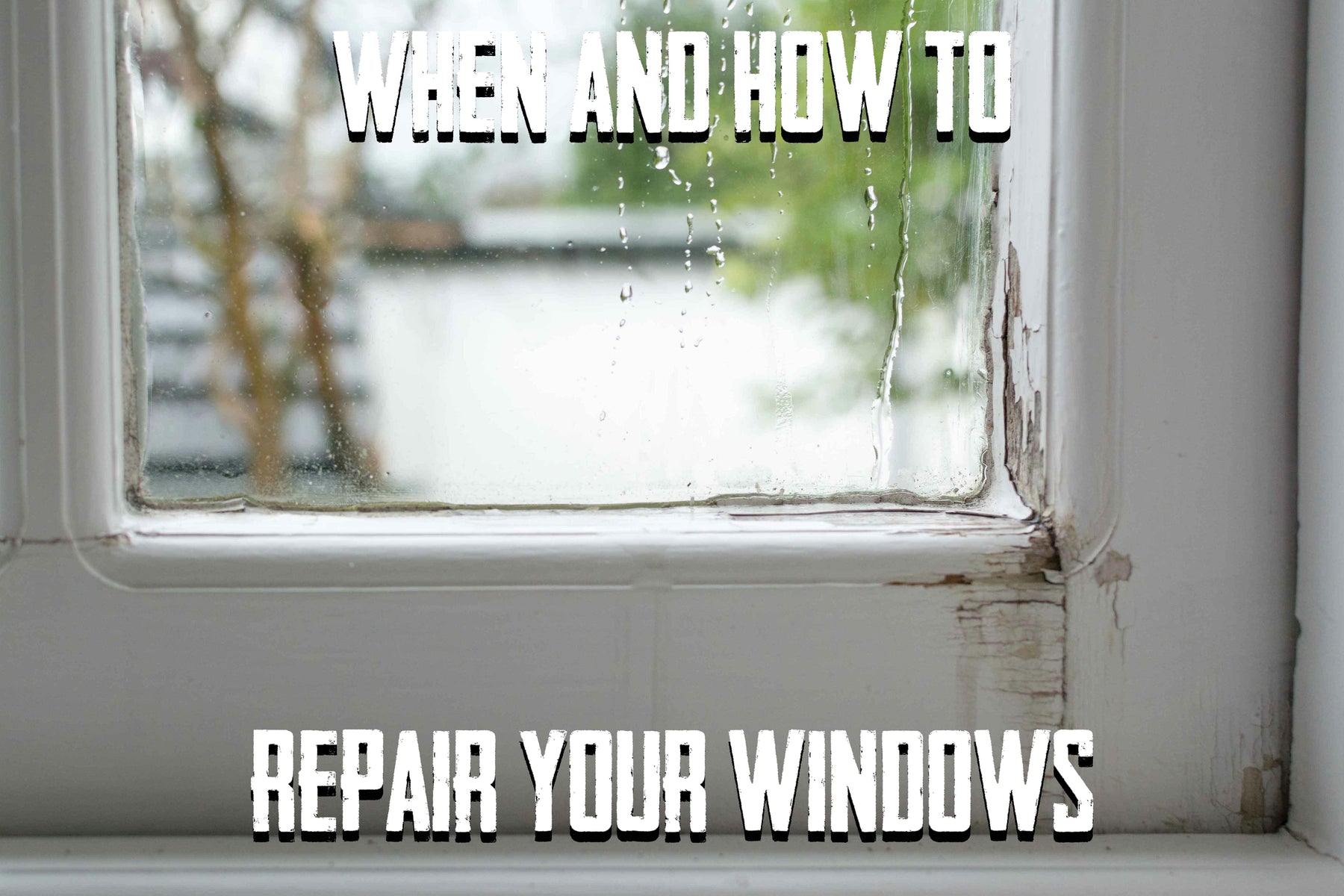
When and How to Repair Your Windows
There are several reasons why your windows may stop functioning properly, but knowing what specifically caused this and when to call in the experts can be challenging. Some problems are as simple as swapping out parts, others may need a full replacement. Let’s take a look at some common problems and how to address them:
Difficulty Opening, Closing, or Not Staying Up
If you are having difficulty opening, closing, or your windows aren't even staying open, the problem is with the parts that operate the window. To find out what parts are not working properly you will need to remove the sash and examine the track or jamb. For double-hung or single-hung windows start by examining the balance. You can view our other posts about replacing block & tackle balances or spiral balances. It is a good practice to inspect both sides of the windows and replace both balances to ensure proper operation of your window.
For casement windows, after the sash is removed, check for loose or stripped screws. Replace or tighten these as necessary. Next, lubricate the hinges, using a product like Alum-a-lub.
For sliding windows, lubricate the track, and examine the window rollers. If your rollers are excessively damaged you may need to replace them.
Decaying or Broken Frames
Window frames are an important part of your home’s functionality and aesthetic. Properly installed frames not only make your home look better, but can also reduce air infiltration down to near zero by creating a seal. This can reduce your heating and cooling costs by up to 40%. Frames are most commonly made out of wood, vinyl, aluminum, and newer frames can be made of fiberglass, but the most common types are wood and aluminum. For wood frames, use liquid epoxy on areas with rotted wood and epoxy putty to fill in cracks. For other frame materials, their gaskets can wear out over time. You can contact the original manufacturer or give us a call to see if we may have a replacement for you.
Leaky Windows
Leaking windows can become a real problem, especially in older homes. After years or decades out in the elements, windows can lose their watertight seal. The most import part of fixing a leaking window is to figure where the leak is coming from. The location of the leak will determine how it can be stopped. Leaks on the wall often mean there is an opening in the wall that is letting water in, however, this opening may not be directly near your window. You may need to remove the entire window and examine and repair areas above it to fix the leak. If the leak is coming from where the window sash meets the jamb, or on the frame, most likely the problem is with the window itself. It could be as simple as needing to replace worn weatherstripping, clogged drainage areas, or a misaligned sash. Perform some simple maintenance such as cleaning and recaulking the frame, checking the gasket between the window frame and the glass and reseal with silicone caulk if necessary, make sure the outer sill is pitched downward to drain water away from the inside of your home, and cleaning debris from the weep holes in the bottom of the frame.
Condensation
Condensation on the outside and inside of your windows is natural and unavoidable, however, if you notice condensation between the panes of glass that is a sign that the window isn’t sealed properly and that is costing you money in heating and cooling costs. There isn’t really a DIY solution to this, so you’ll have to call a local glazer to replace the pane itself.
Here at Window Hardware Direct and Window Repair Systems, we offer the best window repair services and parts at the best prices. Simply put, we are the best at what we do. We offer commercial window repair services that cater primarily to locations in the North East. We distribute parts to homeowners and general contractors nationwide.
If you have any questions, give us a call at 1-800-842-0974, contact us, or chat with us directly using the chat icon on the bottom left of the website.